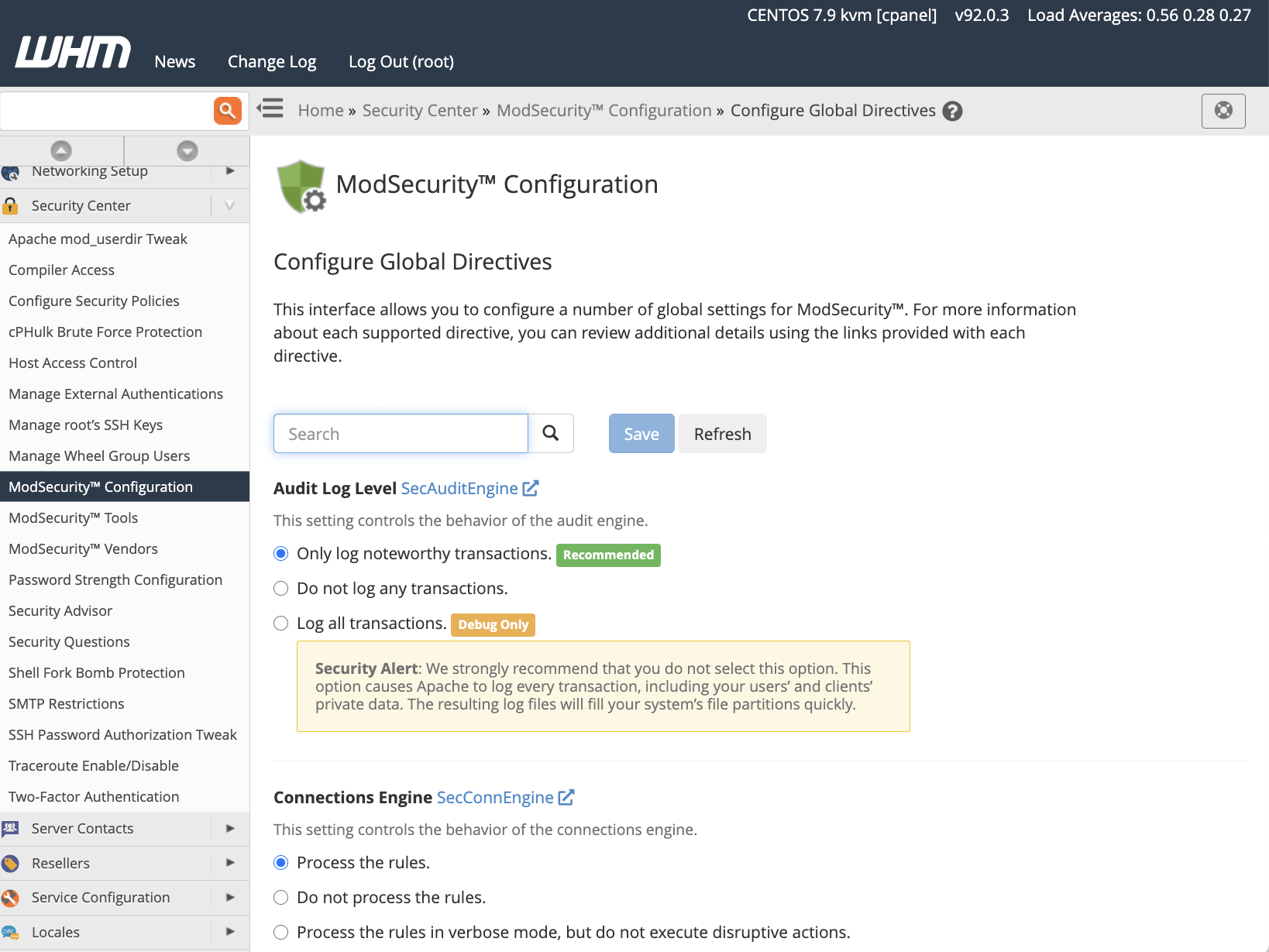Understanding Firewalls and Their Importance in cPanel Security
A firewall is a fundamental component in ensuring the security of your cPanel server. It acts as a barrier between the server and potential threats from the internet, controlling the incoming and outgoing network traffic. By implementing a firewall, you can safeguard your cPanel server from unauthorized access, malicious attacks, and other potential security risks.
One of the key reasons why firewalls are crucial for cPanel security is their ability to enforce strict access control policies. By defining specific rules and policies, you can regulate the flow of traffic to and from your server, allowing only trusted connections and blocking any unauthorized access attempts. This helps in minimizing the risk of unauthorized access or data breaches, providing an added layer of defense to your cPanel server. Additionally, firewalls can also detect and alert you about suspicious network activities, allowing you to take immediate actions to mitigate potential security threats. Overall, understanding and utilizing firewalls effectively is paramount in ensuring the security and integrity of your cPanel server.
The Role of Firewall Rules in Safeguarding Your cPanel Server
Firewall rules play a crucial role in ensuring the security of your cPanel server. These rules act as a barrier, filtering incoming and outgoing network traffic based on predefined criteria. By setting up and managing firewall rules effectively, you can safeguard your cPanel server from unauthorized access, malicious attacks, and potential vulnerabilities.
The primary function of firewall rules is to control network traffic by allowing or blocking specific ports, IP addresses, or protocols. By defining these rules, you can regulate the flow of data to and from your server, ensuring that only legitimate and trusted connections are established. This helps in preventing unauthorized access attempts and mitigating the risk of potential security breaches. Additionally, firewall rules act as a first line of defense against common attacks such as Distributed Denial of Service (DDoS) or brute-force attacks by blocking traffic from suspicious sources or patterns. Overall, firewall rules act as a vital component in safeguarding your cPanel server and maintaining its overall security posture.
Identifying Common Firewall Vulnerabilities and Attacks
Common Firewall Vulnerabilities and Attacks
Firewalls play a critical role in protecting servers against unauthorized access and cyber threats. However, they are not impervious to vulnerabilities and attacks. It is important to identify these common weaknesses to ensure the effectiveness of your firewall configuration.
One common vulnerability commonly exploited is misconfigured rules. In some cases, administrators may unintentionally open unnecessary ports or grant excessive privileges to certain applications. This leaves the server susceptible to unauthorized access and potential breaches. Additionally, firewall rules that are not regularly reviewed and updated can become outdated, allowing attackers to exploit newly discovered vulnerabilities. It is essential to conduct regular audits and maintenance to identify and rectify such vulnerabilities that can compromise the security of your cPanel server.
Another common threat is Distributed Denial of Service (DDoS) attacks. These attacks overwhelm server resources, rendering them unavailable to legitimate users. Firewalls with weak filtering capabilities can struggle to handle the sheer volume of traffic generated by these attacks, leading to service disruption. It is crucial to implement robust DDoS protection mechanisms and configure firewall rules specifically tailored to mitigate such attacks. By monitoring network traffic patterns and setting thresholds, you can identify and respond to DDoS attacks promptly, safeguarding the stability and availability of your cPanel server.
Best Practices for Configuring and Managing Firewall Rules in cPanel
Firewalls play a crucial role in ensuring the security of your cPanel server. Configuring and managing firewall rules effectively is essential to protect your server from unauthorized access and potential attacks. Here are some best practices to follow for configuring and managing firewall rules in cPanel.
Firstly, it is important to understand the principle of least privilege when setting up firewall rules. Only allow network traffic that is necessary for the functioning of your server and block all other unnecessary traffic. This will minimize the potential attack surface and reduce the risk of unauthorized access.
Secondly, regularly review and update your firewall rules to ensure they are up to date with the latest security recommendations. This includes monitoring for new vulnerabilities and emerging threats, and adjusting your rules accordingly. Additionally, it is advisable to log and analyze firewall activity to identify any suspicious or malicious behavior that might warrant further investigation.
By following these best practices, you can significantly enhance the security of your server and protect it from potential threats. Effective firewall rule management is a vital component of a robust security strategy in cPanel.
Exploring the Different Types of Firewall Rules Available in cPanel
Firewall rules in cPanel allow users to control and manage incoming and outgoing network traffic on their servers. There are various types of firewall rules available in cPanel, each serving a specific purpose in enhancing server security.
The first type of firewall rule is the “Allow” rule. As the name suggests, it permits specified IP addresses or range of addresses to access the server. This rule is useful when you want to grant access to specific clients or networks while restricting others. It provides an added layer of control and ensures that only authorized entities can connect to your cPanel server.
The second type of firewall rule is the “Block” rule. This rule, as opposed to the “Allow” rule, denies access to specified IP addresses or range of addresses. It is useful in blocking connections from known malicious sources or unwanted visitors, helping prevent potential attacks and unauthorized access to your server.
In addition to these basic firewall rules, cPanel also offers more advanced rules such as “Redirect,” which can redirect incoming connections to a different IP address or port, and “Port Forwarding,” which allows forwarding of specific ports to other systems. These advanced rules provide flexibility in configuring the firewall to meet the specific requirements of your server setup.
By exploring and understanding the different types of firewall rules available in cPanel, you can effectively configure and manage your server’s security. It is crucial to select the appropriate rules and define them correctly to ensure maximum protection against potential threats and unauthorized access.
Implementing Firewall Rule Management Strategies for Enhanced Security
Implementing effective firewall rule management strategies plays a crucial role in enhancing the security of your cPanel server. With the ever-increasing threats and vulnerabilities in the online world, it is imperative to have a robust firewall in place. However, simply setting up a firewall is not enough; it is equally important to manage and configure the firewall rules effectively.
One key strategy is to regularly review and update the firewall rules. This involves analyzing the incoming and outgoing traffic patterns and adjusting the rules accordingly. By constantly monitoring and updating the firewall rules, you can ensure that your system remains protected against new and emerging threats.
Another important aspect of firewall rule management is to prioritize the rules based on risk levels. Assigning different priorities to different rules allows you to focus on the high-priority rules, ensuring that they receive the necessary attention and resources. This strategy helps in optimizing the performance of your firewall and effectively safeguarding your cPanel server.
Key Considerations for Creating Effective Firewall Rules in cPanel
When creating effective firewall rules in cPanel, there are several key considerations to keep in mind. First and foremost, it is crucial to thoroughly understand the needs and requirements of your system. Take the time to analyze your network traffic and identify potential vulnerabilities and threats. By understanding the specific risks your cPanel server may face, you can tailor your firewall rules accordingly, ensuring that they provide the necessary protection.
Another important consideration is to maintain a balance between security and usability. While it is essential to have strict rules in place to prevent unauthorized access, overly restrictive rules can sometimes hinder legitimate traffic. Therefore, it is crucial to strike a balance that enables necessary services while still safeguarding the system from potential threats. Regular reviews and updates of your firewall rules are also vital. As new threats emerge and technology evolves, it is imperative to stay up to date and keep your firewall rules current to ensure continuous protection and mitigate any potential risks. By regularly monitoring and updating your firewall rules, you can adapt to new vulnerabilities and attacks, maintaining a robust and effective security posture for your cPanel server.
How to Monitor and Update Firewall Rules for Continuous Protection
Monitoring and updating firewall rules are essential for maintaining continuous protection for your cPanel server. By regularly monitoring your firewall rules, you can stay proactive in identifying and addressing any potential security risks or vulnerabilities. This ensures that your server remains resilient against emerging threats and ensures the ongoing safety of your data.
To effectively monitor your firewall rules, it is recommended to use a combination of tools and techniques. One common method is to set up alerts or notifications that will send you immediate notifications whenever there are changes or suspicious activities detected in your firewall settings. This can help you quickly respond to any potential security breaches, ensuring that your server’s protection is continuously maintained. Additionally, regularly reviewing your firewall logs and analyzing them for any irregularities or patterns can also provide valuable insights into potential threats or gaps in your security setup. By regularly monitoring and reviewing your firewall rules, you can proactively protect your cPanel server and keep it secure from potential attacks.
Integrating Firewall Rule Management with Other Security Measures in cPanel
Integrating Firewall Rule Management with Other Security Measures in cPanel
When it comes to safeguarding your cPanel server, it is not enough to rely solely on firewall rules. While firewall rules play a crucial role in preventing unauthorized access and controlling network traffic, integrating them with other security measures can further enhance the overall security of your cPanel environment. By combining firewall rules with practices such as regularly updating software, using strong passwords, and implementing intrusion detection systems, you create a multi-layered defense mechanism that significantly reduces the risk of unauthorized access and potential security breaches.
One way to integrate firewall rule management with other security measures is to implement regular security audits and assessments. These audits help identify any weaknesses or vulnerabilities in your cPanel environment, including potential flaws in firewall rule configurations. By conducting regular audits, you can ensure that your firewall rules are up to date and aligned with your evolving security needs. Additionally, integrating firewall rule management with other security measures allows for a holistic approach to security, creating a comprehensive system that works in tandem to protect your cPanel server from various threats.
Ensuring Compliance and Auditability of Firewall Rule Management in cPanel
Firewall rule management plays a critical role in maintaining the security of your cPanel server. However, it is equally important to ensure compliance and auditability of these firewall rules. Compliance refers to adhering to industry standards, regulations, and best practices, while auditability ensures that your firewall rule management processes can be effectively evaluated and reviewed.
To ensure compliance, it is essential to regularly assess and update your firewall rules to address any known vulnerabilities or emerging threats. This includes staying up-to-date with the latest security patches and updates provided by cPanel. Furthermore, conducting regular security audits can help identify any potential gaps or weaknesses in your firewall configuration.
Auditability, on the other hand, involves maintaining accurate and detailed records of any changes made to your firewall rules. This includes documenting the date, time, and reasons for each modification. By having a comprehensive audit trail of firewall rule management activities, you can effectively monitor and review the effectiveness of your security measures, as well as demonstrate compliance during external audits or inspections.
By ensuring compliance and auditability in your firewall rule management processes, you can enhance the overall security of your cPanel server. This not only protects your sensitive data and resources but also instills confidence in your clients or customers, knowing that their information is safeguarded against potential threats and vulnerabilities.
What is a firewall and why is it important in cPanel security?
A firewall is a security measure that monitors and controls incoming and outgoing network traffic. It acts as a barrier between your cPanel server and potential threats, preventing unauthorized access and protecting your data and systems from attacks.
What role do firewall rules play in safeguarding a cPanel server?
Firewall rules define the criteria for allowing or blocking traffic to and from your cPanel server. By configuring and managing these rules, you can ensure that only necessary and trusted connections are permitted, reducing the risk of unauthorized access and protecting your server from malicious activities.
What are some common vulnerabilities and attacks that can exploit firewall weaknesses?
Common vulnerabilities include misconfigurations, weak rule settings, and outdated firewall software. Attacks that can exploit these weaknesses include DDoS attacks, port scanning, and unauthorized access attempts.
What are the best practices for configuring and managing firewall rules in cPanel?
Some best practices include regularly reviewing and updating rules, restricting access to essential services, blocking unnecessary ports, and using whitelisting and blacklisting techniques to control traffic.
What are the different types of firewall rules available in cPanel?
cPanel offers various types of firewall rules, including IP-based rules, service-based rules, port-based rules, and country-based rules. These rules can be combined and customized to meet your specific security needs.
How can firewall rule management strategies enhance the security of a cPanel server?
Effective management strategies involve regular monitoring and updating of rules, implementing automated rule deployment, conducting security audits, and enforcing strict access controls. These strategies help maintain a robust firewall system and enhance the overall security of your cPanel server.
What are the key considerations for creating effective firewall rules in cPanel?
Key considerations include understanding your server’s specific security requirements, conducting a risk assessment, following the principle of least privilege, regularly reviewing and updating rules, and adopting a proactive approach to security.
How can firewall rules be monitored and updated for continuous protection?
Firewall rules should be regularly monitored using logging and reporting features. Any suspicious activity or new threats should be analyzed, and rules should be updated accordingly. Automated tools and scripts can also be utilized to streamline this process.
How can firewall rule management be integrated with other security measures in cPanel?
Firewall rule management should be part of a comprehensive security strategy that includes measures like strong passwords, regular software updates, intrusion detection systems, and security audits. Integrating these measures ensures layered protection for your cPanel server.
How can compliance and auditability of firewall rule management be ensured in cPanel?
Compliance can be ensured by adhering to industry best practices and standards, such as PCI DSS or HIPA




